On July 11, Baltimore Regional Housing Partnership (BRHP) Executive Director Adria Crutchfield joined PhD economist and freelance economic policy consultant Dr. Kathryn Anne Edwards to discuss the childcare crisis in the United States as part of the ongoing BRHP In Conversation series designed to introduce relevant experts and information to stakeholders and community members. The main topics of the conversation included explanations of the root of childcare inaccessibility in the United States, the harmful effects of inadequate or absent childcare on mothers and children, the importance of investing in children, and potential solutions to this crisis. I was impressed by Dr. Edwards’ compelling explanation of the widespread impacts of expanding affordable childcare for families, women, and children – issues critical to BRHP’s work serving more than 4,300 families in their Housing Mobility Program, which includes nearly 8,000 children.
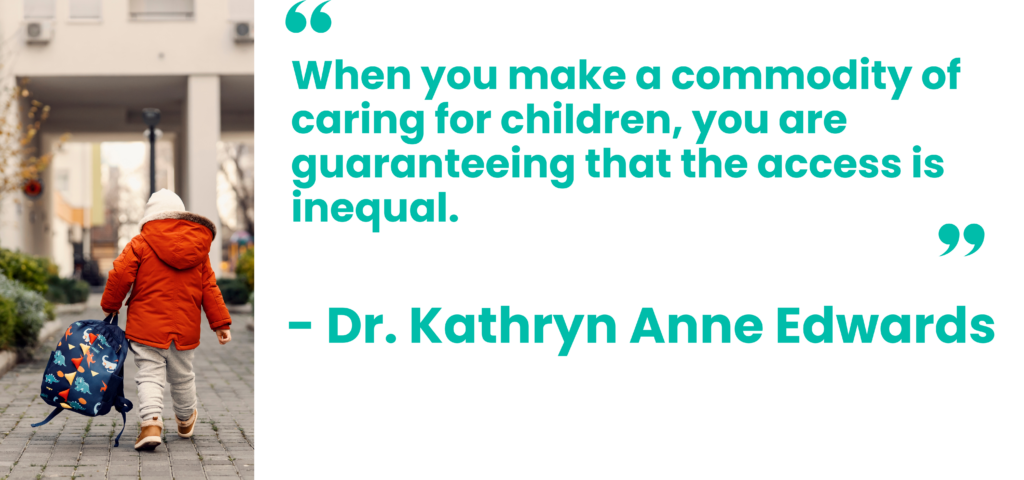
Dr. Edwards expertly described the foundation of what the national childcare crisis entails and who it harms most. In the United States, childcare is offered by a private market, Dr. Edwards explained, meaning childcare must be profitable; unfortunately, this market has been in decline and in failure for decades. She argued that the root of the childcare crisis is inaccessibility due to the commodification of childcare, “when you make a commodity of caring for children, you are guaranteeing that the access is unequal.” For example, “the price of childcare has risen faster, over the past 30 years, than medical care, housing, food, energy, and even prescription drugs,” and currently, “the average mortgage payment in the United States is less than the average childcare payment,” said Dr. Edwards, mentioning that it is often easier for families to purchase houses than secure quality childcare. I was surprised at this poignant comparison given BRHP’s extensive knowledge of housing market failures. The absurdly prohibitive costs of childcare make accessing it fundamentally unequal, “because we are selling high-quality early childhood development, and people who want to buy it can’t.”
Because of BRHP’s involvement in the housing market and related policies, I found the juxtaposition of the two markets especially intriguing. Dr. Edwards focused on a similar policy choice in the United States to rely on the free market to provide both resources. In both cases, the United States relies on the market to provide most of the supply while the government offers subsidies and direct services only at the margins. There are numerous policies the government could enact to improve the housing market supply and access; for example, the government could expand the Low-Income Housing Tax Credit (LIHTC) program, develop and fund more affordable housing and affordable mortgages, or even increase funding for housing vouchers to meet the actual need1 – but Dr. Edwards contended that while the housing market is large and functional enough to work with additional government investment, the same cannot be said for childcare.
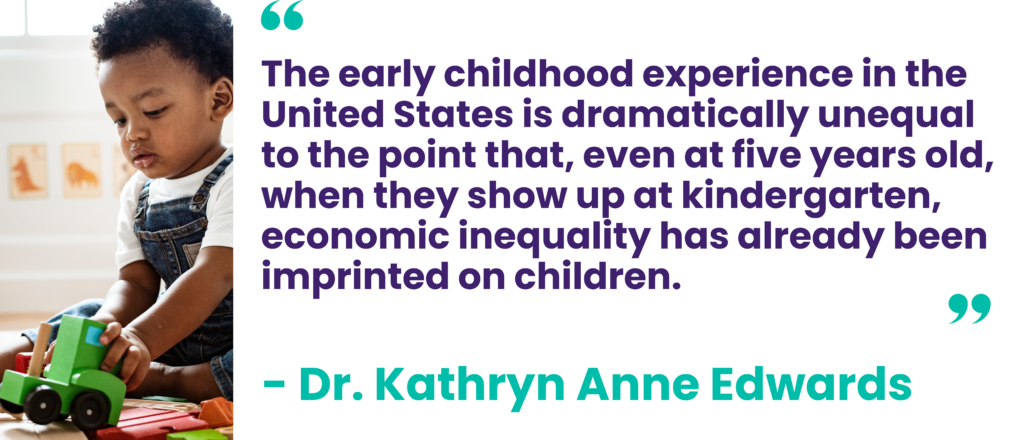
The childcare market is a complete failure that must be entirely replaced with a new model that relies on government investment to ensure equal access to needed care. Unfortunately, Dr. Edwards remarked that there is no market solution for childcare, because there are no ways for quality childcare practices to evolve to be less resource-intense; “children need the eyes, ears, and attention of a capable adult. That is expensive, there is no other way to make it cheaper or more efficient,” Dr. Edwards explained. The housing market could easily produce sufficient housing supply at different price points, using various structures, and located across a city. Childcare, on the other hand, should be more equitable, meaning there should not be a massive price dispersion nor significant differences in these experiences since all children need and benefit from a baseline of early education.
I found Dr. Edwards’ point about the impacts of the childcare crisis on families, especially women in the workforce, extremely compelling; particularly how she linked gender roles in childcare and the labor market to the need for affordable, equitable, and accessible childcare. She framed the recent mass exodus of women from the labor market, due to historic discrimination and gender-based wage gaps, as a loss of years of income tax contributions. Access to quality affordable childcare allows parents and families to work more consistently – particularly mothers. It would allow them to increase their savings and disposable income without the restrictive cost of childcare, instead spending that money on other necessities, and to provide equitable access to early childhood interventions and education for all children. Dr. Edwards explained that “when kids enter kindergarten at age five, economic inequality has already been imprinted,” as demonstrated by the 30-40% of five-year-olds who are not prepared for kindergarten like their peers. If every child is part of an early educational program through affordable and equitable childcare, it is easier to catch developmental delays sooner. The economic benefits to early childcare are clear. High-quality care is an investment in children’s education and development that is a direct investment in the future workforce, and the current workforce by enabling parents to work and earn higher incomes that provide for improved family outcomes.
Dr. Edwards confirmed Adria’s suggestion that historical discrimination and racism keeping Black and Brown households out of the housing market and excluded from wealth-building endeavors extends to the childcare crisis. “Black and brown women are disproportionately affected,” Dr. Edwards stated, because “resources determine the quality of care,” and these groups have been denied necessary resources for decades, preventing access to adequate housing options and high-quality childcare alike.
Despite the grim nature of the childcare crisis and its harmful impacts, I was inspired and made hopeful by Dr. Edwards’ discussion of the beneficial models already in action at the state and local levels, and even among neighboring countries, from which the United States can draw. New Mexico added permanent funding for universal access to childcare in their constitution; although the supply has been insufficient for the demand, this model offers a good start to alleviating childcare concerns. D.C. provides universal access to early education and childcare for three to four-year-olds; however, D.C. is both a model and a cautionary tale, according to Dr. Edwards, since their programs upended the private childcare market for infants up to three years old, and they have the longest childcare waitlist and most expensive care across the nation. On the other hand, Canada utilizes a capped cost system, covering the remaining costs after parents pay a capped fee, allowing families to dictate their preferred type of care. This model makes the most sense for the United States to follow, suggested Dr. Edwards.
Ultimately, Dr. Edwards’ informative discussion made clear that the United States must recognize the connection between economic prosperity and access to childcare and make the needed investment to create a public childcare system for all, not only as an important public service but for the sake of the national economy.
1. “Due to severe underfunding, just one out of every four income eligible households receives the help it needs from federal housing assistance” (Mazzara, 2021). Out of Reach 2024 Report, National Low Income Housing Coalition (NLIHC)
Want to catch the full conversation? Take a moment to watch the full replay on our YouTube channel!
Written by — Jackie Rittenhouse, Communications and Special Projects Intern
Quarterly-Partner-Newsletter-August-2023-Q3-DONORSOn Tuesday, August 15th, BRHP hosted U.S. Senator for Maryland, Chris Van Hollen, in our office for a discussion on housing programs and the critical role BRHP plays in the housing mobility community. Senator Van Hollen is a long-time champion of housing mobility approaches and expanding and protecting affordable housing.
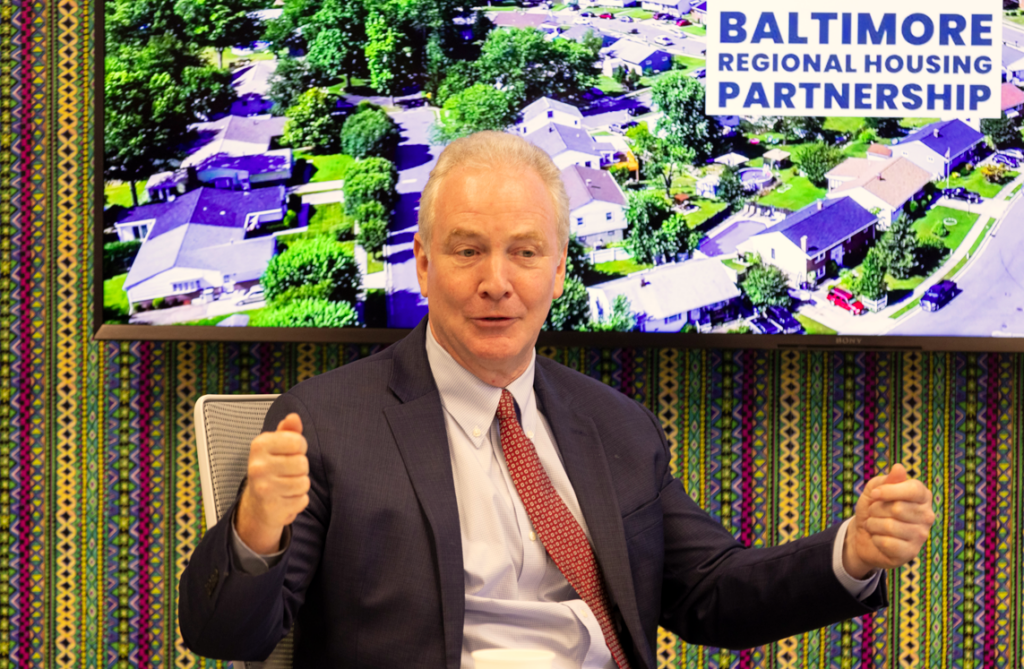
Senator Van Hollen discussed his work on the HUD Community Choice Demonstration (originally called the Housing Mobility Demonstration Act) and his current work on the Family Stability and Opportunity Vouchers Act, which would create 250, 000 new housing mobility vouchers to help families move to areas with greater opportunity. The bipartisan bill is aimed at improving the lives of families with young children and would increase access to mobility vouchers while providing counseling services, similar to BRHP’s proven method of combining client counseling with housing mobility vouchers. Senator Van Hollen also talked about the importance of having bipartisan support for housing mobility and housing funding.
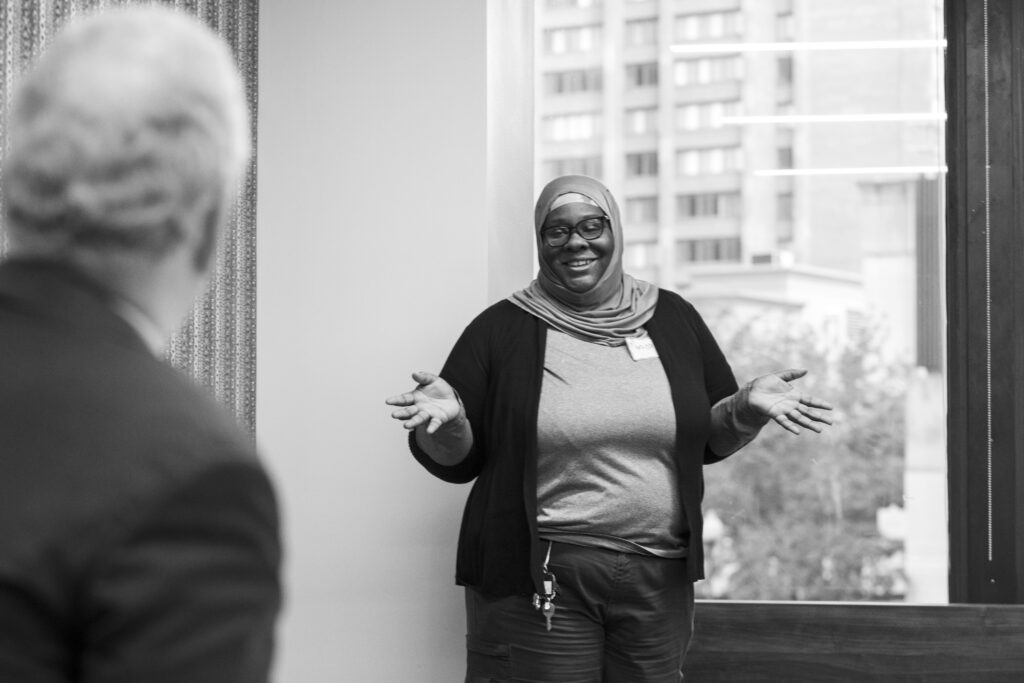
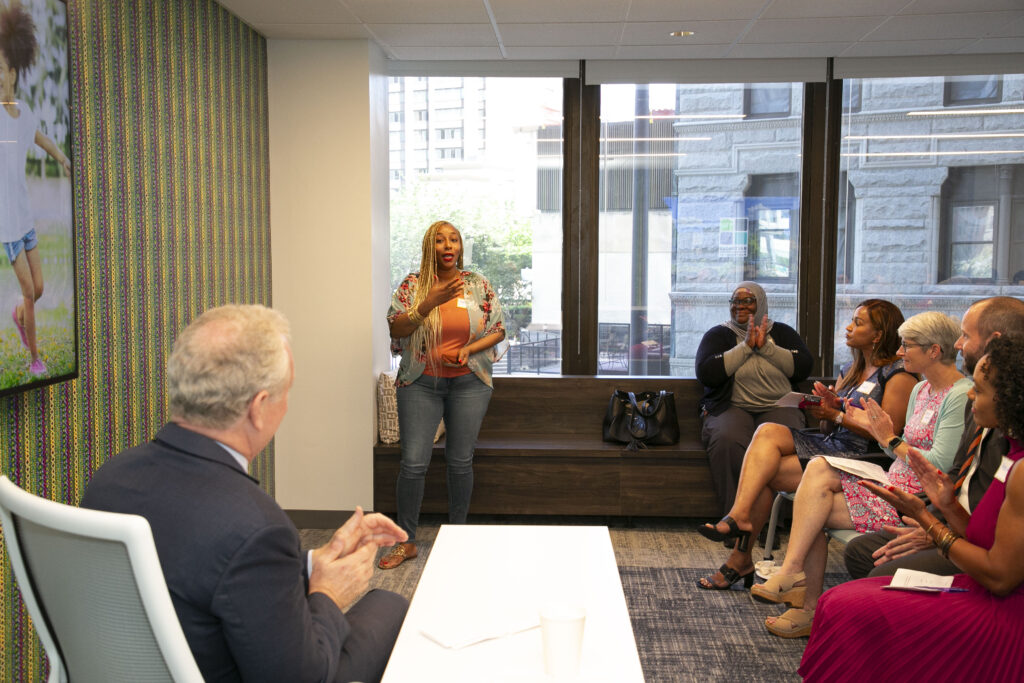
Members of BRHP’s Client Advisory Board (CAB) also shared their experiences with BRHP’s housing mobility program. Monica Braxton shared the positive impact of moving into an opportunity area for her and her family, discussing her pride and comfort in her new community. Mykki Scott shared how BRHP staff had assisted in navigating an unexpected move during the COVID-19 pandemic. Zelda Tally shared the opportunities that BRHP’s program provided, and the ability to give her children access to education and other resources that would help her family build long-term, generational success.
BRHP’s Managing Director of Operations and Program Evaluation, Pete Cimbolic, shared BRHP’s recent milestones, notably in achieving a full 98% voucher utilization rate, compared to an 88% average in Maryland and 85% nationwide. Pete emphasized the role of flexible funding in helping agencies achieve higher utilization rates, noting how BRHP flexible funding not only helps clients with security deposits and other financial barriers related to moving into a new community, but also helps BRHP gain and maintain a network of property partners to ensure a supply of quality homes for BRHP participants. The importance of flexible funding was further reinforced by a BRHP program participant who shared how BRHP helped her move despite a landlord wrongfully withholding her security deposit. To this end, Janet Abrahams, the CEO for the Housing Authority of Baltimore City, urged the Senator to lend his support to a recent Senate appropriations bill seeking an extension for flexible funding for public housing agencies. Rounding out the conversation was one of BRHP’s property partners, Dana Johnson, CEO of Homes for America, who raised the need for continued support of financial vehicles that allow for the expansion of the affordable housing supply in the region.
BRHP thanks Senator Van Hollen for his fierce advocacy for housing mobility initiatives and in creating opportunities for families in Maryland and across the country to thrive.
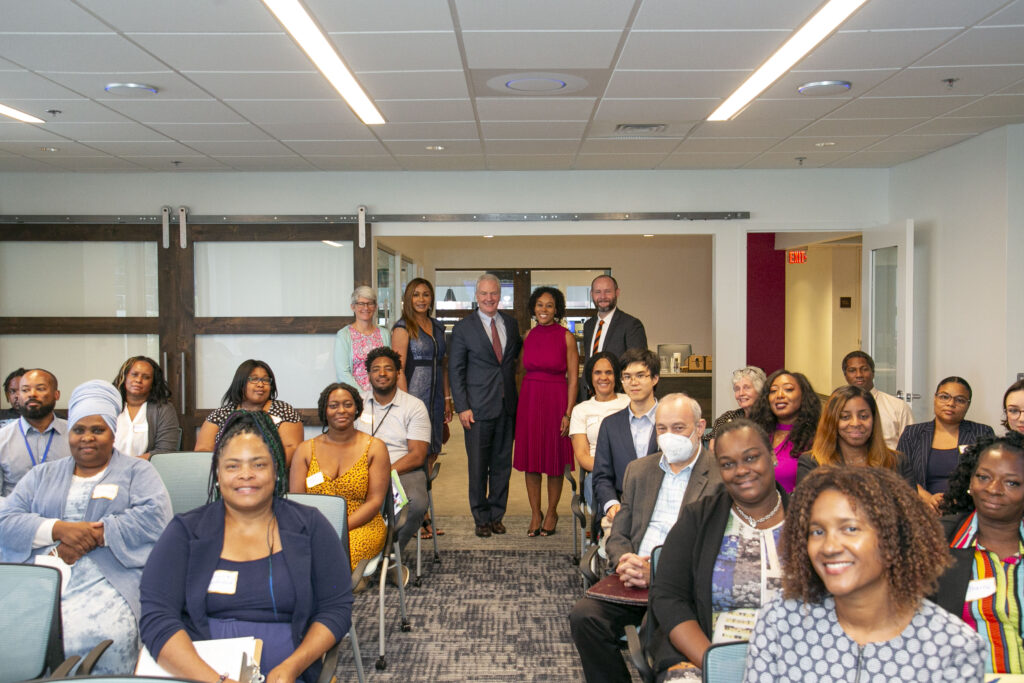
Steven Chen, Communications Intern
On April 20, 2023, the Baltimore Regional Housing Partnership had the honor of hosting Demetria L. McCain for our BRHP In Conversation series which aims to share and discuss ideas related to housing equity and justice with housing mobility groups, activists, policymakers, and tenants alike. Demetria is the Principal Deputy Assistant Secretary for Fair Housing and Equal Opportunity (FHEO) at the U.S. Department of Housing and Urban Development (HUD). During the conversation, Deputy Assistant Secretary McCain discussed not only the roles and responsibilities of the HUD’s Office of Fair Housing and Equal Opportunity, but also the importance of everyone’s voice in ensuring all comply with fair housing laws.
April 2023 marks 55 years since the signing of the Fair Housing Act on April 11, 1968, and while progress has been made, there is still much to do to further equitable housing.
One key takeaway from the discussion was the importance of addressing intersectional discrimination. Deputy Assistant Secretary McCain described how discrimination has traditionally been framed in a list of set categories, such as race, gender identity, or national origin, for example, but that it is important to recognize that these categories may not always translate directly to cases of discrimination experienced in the real world. Discrimination may target a combination of factors within these categories, and often takes less-obvious forms, such as lack of training to accommodate disability in both private and public institutions. She also mentioned the restoration of HUD’s “Discriminatory Effects” rule, which aims to combat systemic inequalities and discrimination regardless of whether these inequalities were the products of discriminatory intent. McCain also mentioned that April was Second Chance Month, an effort to raise awareness about specific challenges facing those who were formerly incarcerated.
The conversation also touched on the importance of legislature, both in promoting public interest relief and in stimulating further action. While the FHEO does assist with individual interest relief, Deputy Assistant Secretary McCain underscored the importance of public interest relief in the form of policy that would protect and reinforce fair and equitable housing practices. Recent Presidential memos and even Executive Orders, notably the Executive Order on Advancing Racial Equity and Support for Underserved Communities Through the Federal Government, have made important inroads towards promoting housing equity and antidiscrimination practices on a federal level. Still, there is more work to be done to create a fairer system.
Deputy Assistant Secretary McCain echoed the importance of public action, which forms an important part of the fight for equitable housing. In conjunction with legislation and programs promoting equitable housing, we can also play an important role as individuals in promoting and refining fair housing programs across the United States. Public involvement comes in many forms, ranging from discussion of fair housing issues with family and friends, to feedback for FHEO programs and providing public comments on proposed rules. Indeed, McCain mentioned the Notice of Proposed Rulemaking titled Affirmatively Furthering Fair Housing, which was in its public comment period at the time, and would implement the Fair Housing Act’s mandate to take proactive action towards fair housing and foster communities free from discrimination. Getting involved helps both improve proposed legislation and helps bring the issue of equitable housing – an issue that affects millions of Americans – into the public eye.
For more detail into all this and more, we encourage you to check out the full recording at BRHP In Conversation With Demetria McCain
For Immediate Release: Tuesday, May 16, 2023
Baltimore, MD – A new study analyzing data from families in the Baltimore Regional Housing Partnership highlights the potential for housing mobility programs to help improve childhood asthma.
The Baltimore Regional Housing Partnerships’ housing mobility program provides rental assistance in the form of a Housing Choice Voucher and housing counseling that helps families overcome barriers to leasing quality housing in well-resourced neighborhoods. The study published online May 16, 2023, in the Journal of American Medical Association, is based on data from 123 children ages 5 to 17 who participated in the housing mobility program between 2016 and 2020.
The majority of children (47.2%) were female and 120 (97.6%) identify as Black. The median age was 8.4. On average, participants experienced substantial improvements and reduced the odds of having an asthma attack by more than 50 percent. The study was led by Craig Pollack, MD, a professor with joint
appointments at the Johns Hopkins Bloomberg School of Public Health and the Johns Hopkins School of Nursing.
Asthma is a chronic lung disease that affects millions of children worldwide, causing wheezing, coughing, shortness of breath, and chest tightness. Children living in high-poverty neighborhoods have a greater risk of experiencing asthma symptoms due to exposure to environmental pollutants, mold, pests, and neighborhood-related stress.
The study highlights the importance of providing families with better housing opportunities. In addition to reducing asthma morbidity, the study found that moving from a high-poverty neighborhood helped decrease stress levels among parents/caregivers. Parents and caregivers participating in the study
reported feeling safer and more connected to their surroundings after the move. This study adds to the evidence that housing mobility programs improve more than just living conditions – they improve public health.
“The lower number of asthma attacks after families move reinforces that where people live matters for their health,” said lead author Pollack, the Johns Hopkins Bloomberg School of Public Health and School of Nursing professor. “Importantly, changes in stress and safety were a key factor in these asthma
improvements.”
Housing mobility programs were designed to address historic and contemporary housing discrimination that have resulted in racial and ethnic segregation, depleted segregated neighborhoods of opportunities to generate wealth, and contributed to unhealthy and stressful living conditions. The study’s findings underscore the value of interdisciplinary research in addressing complex social issues, such as housing and health disparities.
“For years we have heard anecdotally of the health improvements experienced by our clients after they move with the program, particularly around asthma”, said Pete Cimbolic, Managing Director at BRHP and co-author of the study. “The change in neighborhood context for these families has proven to have significant impacts on both the asthma of children, but also the stress of caregivers”. The results suggest that similar programs should be implemented nationwide to improve public health and create more equitable communities. BRHP is committed to improving the well-being of the most
vulnerable populations.
For more information about the study, please contact:
Baltimore Regional Housing Partnership Press Contact: TaKera Boston, tboston@brhp.org, 667-207-2170
###
BRHP is dedicated to helping achieve racially and socially equitable public policy that ensures families with low income have access to quality and affordable homes in communities of their choice. As affordable housing advocates we prioritize policy that combats the persistence of income inequality, racial segregation, environmental inequalities, and poverty concentration. On June 22, 2022, BRHP joined the Archdiocese of Baltimore’s Beyond the Boundaries Steering Committee and other fair housing organizations to express support for policy that will strengthen inclusionary housing in Baltimore City.
Baltimore’s most recent inclusionary housing law was enacted in 2007 as City Ordinance No. 07-474 and adopted under Inclusionary Housing Requirements Article 13, Subtitle 2B of the Housing and Urban Renewal Baltimore City Code. The bill had intentions to require residential developments to provide affordable units to promote economic diversity, poverty deconcentration and equitable neighborhoods. However, the law expired on June 30, 2022, and only produced 37 affordable housing units in 15 years, rendering it ineffective and merely decorative.
Councilwoman Odette Ramos of District 14 introduced Council Bill 22-0195, “Inclusionary Housing for Baltimore City,” to correct the deficiencies in the expired law and remove barriers to the production of inclusionary housing units. As supporters of this bill, BRHP collaborated with the councilwoman to amplify the importance of having an effective inclusionary housing bill in a city where racial inequalities and segregation continue to imbrue neighborhoods overtly and implicitly.
BRHP Executive Director Adria Crutchfield and BRHP Client Advisory Board member Monica Braxton joined Councilwoman Ramos and the inclusionary housing steering committee at a press conference in front of City Hall to urge city officials to pass Council Bill 22-0195. BRHP’s representatives shared the importance and impact of the Baltimore Housing Mobility Program in connecting families to affordable housing and made powerful remarks supporting the strengthened inclusionary housing bill.
According to the 2021 Out of Reach Report by the National Low Income Housing Coalition, to afford a 2-bedroom home in Baltimore without paying more than 30% of your income on housing, the average renter must earn an annual income of over $55,000; that’s a wage of $26.62 an hour. However, the current minimum wage in Maryland is only $11.75. As underscored by Crutchfield, “the math ain’t mathin.”
In her remarks to the press, Crutchfield underlined the direct link between access to affordable housing and health outcomes, and the importance of utilizing housing policies, such as inclusionary housing law, to help low- and moderate-income families build wealth and achieve stability. Alongside Crutchfield, Braxton shared how access to affordable housing through the Baltimore Housing Mobility Program made a positive impact in her family’s life.
“It is important to provide more affordable housing options for our families and include us in these new developments,” said Braxton. “We are the heartbeat of this city and providing more options that can give our children a safe place to grow and thrive will only benefit this city for generations to come”.
BRHP was proud to unite with local affordable housing advocates to support policy that will impact generations to come in Baltimore. It is our hope that the impact will be one of progress for all Baltimoreans. As we push City Council for a bill hearing date, we urge the Baltimore City Department of Housing and Community Development and Mayor Brandon Scott to take swift and bold action to achieve a successful inclusionary housing policy that will help achieve long-term investments in affordable housing and reduce the longstanding disparities in the most vulnerable communities. With the help of city leadership and housing advocates, BRHP will continue to make incremental and strategic efforts to support inclusionary housing in Baltimore City.
Fiona Mesfun is a policy associate at the Baltimore Regional Housing Partnership
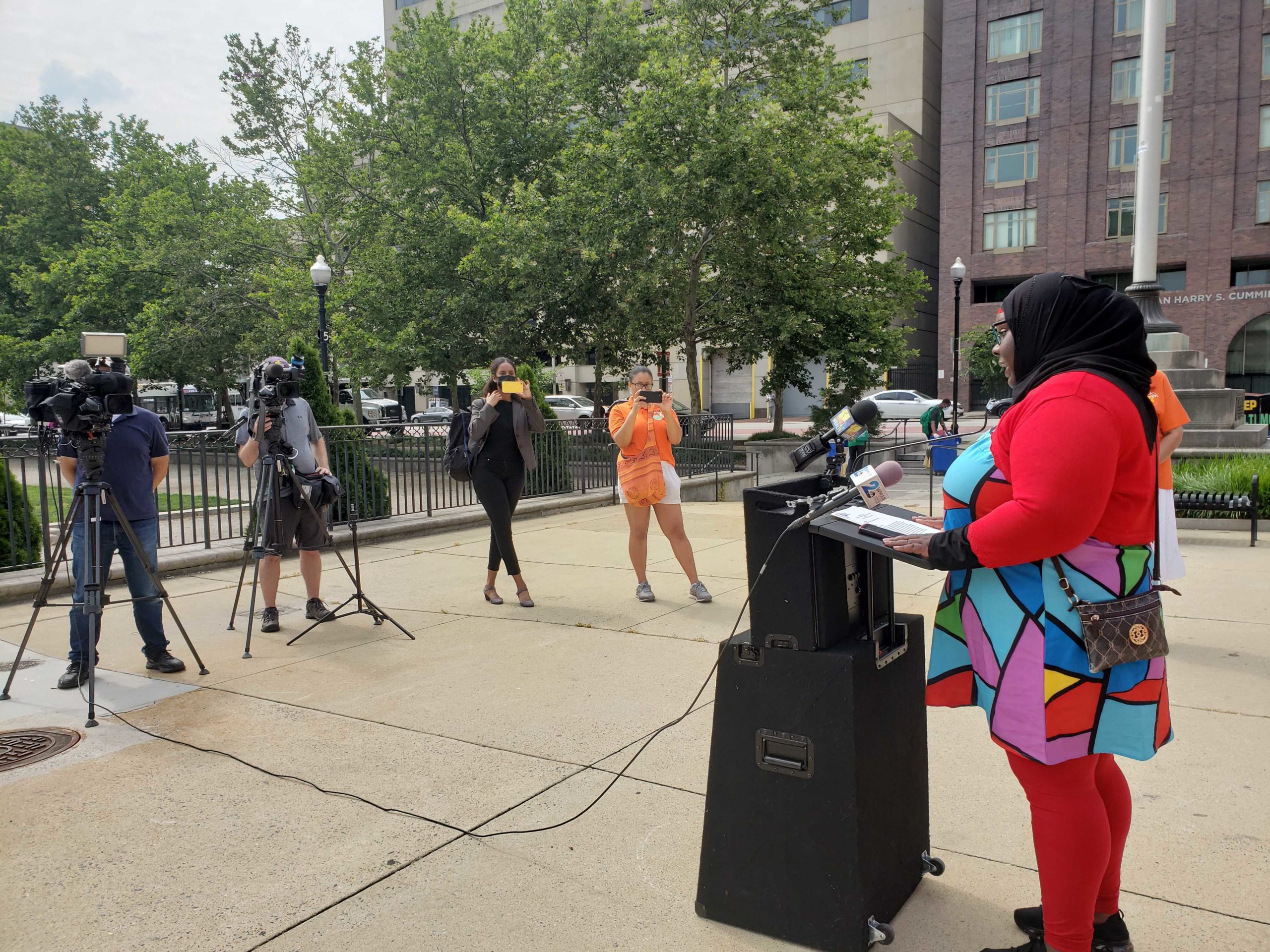
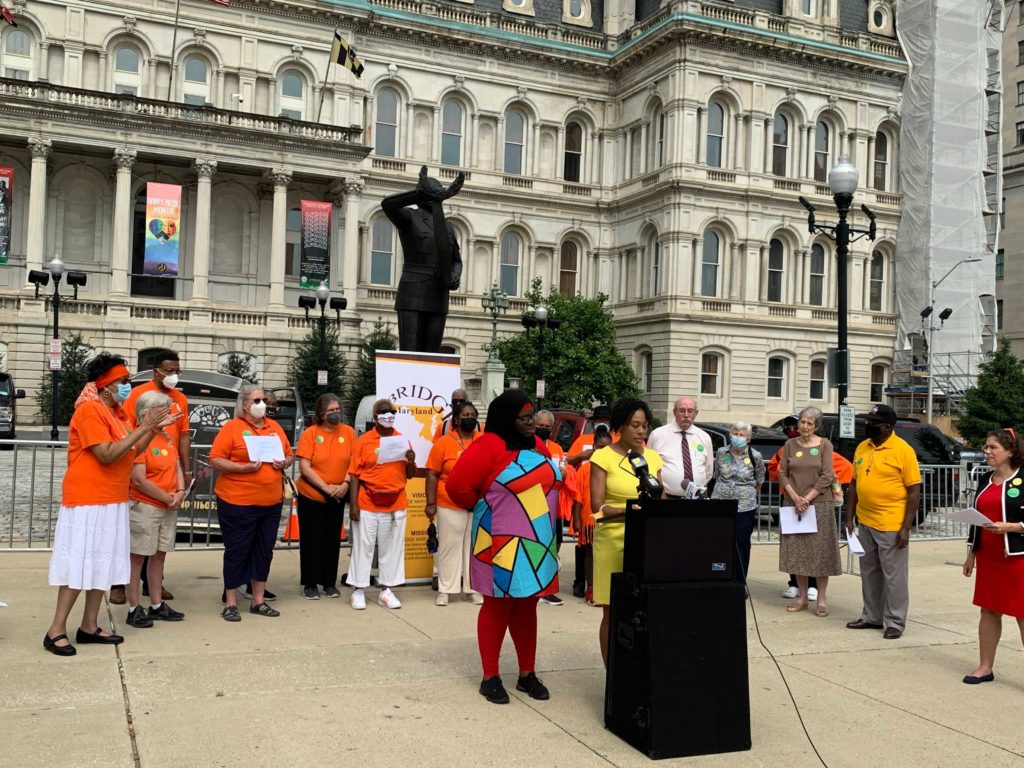
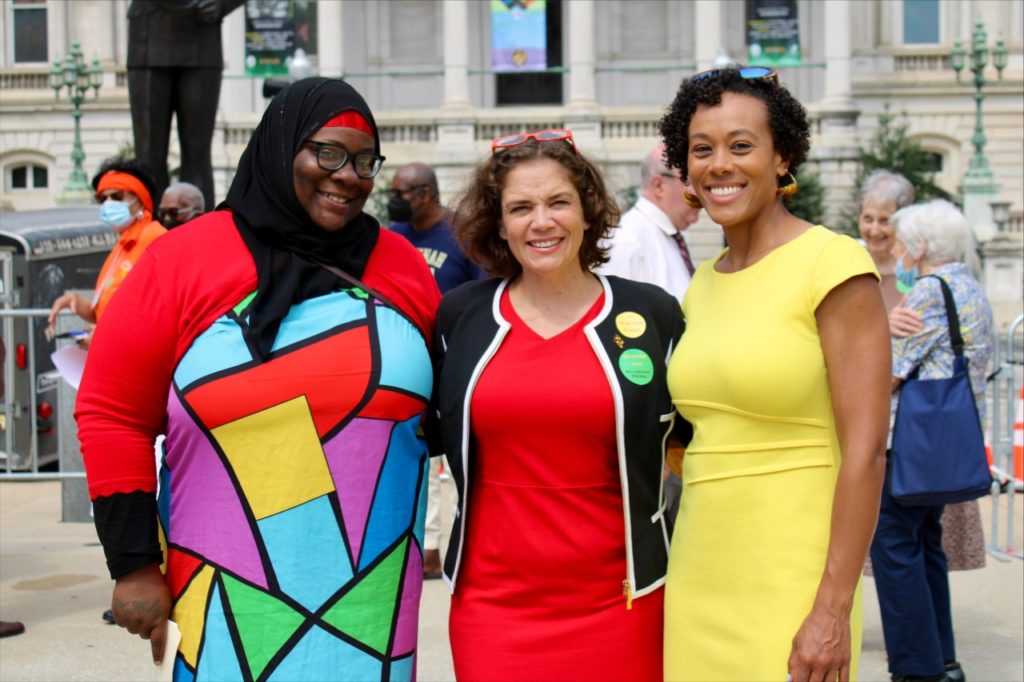
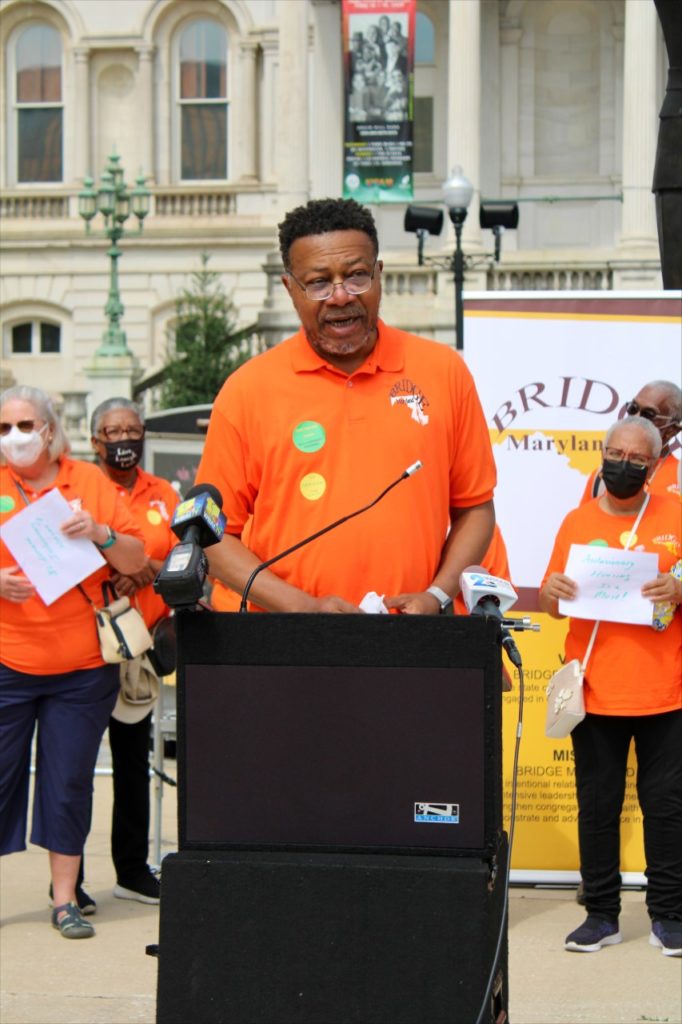
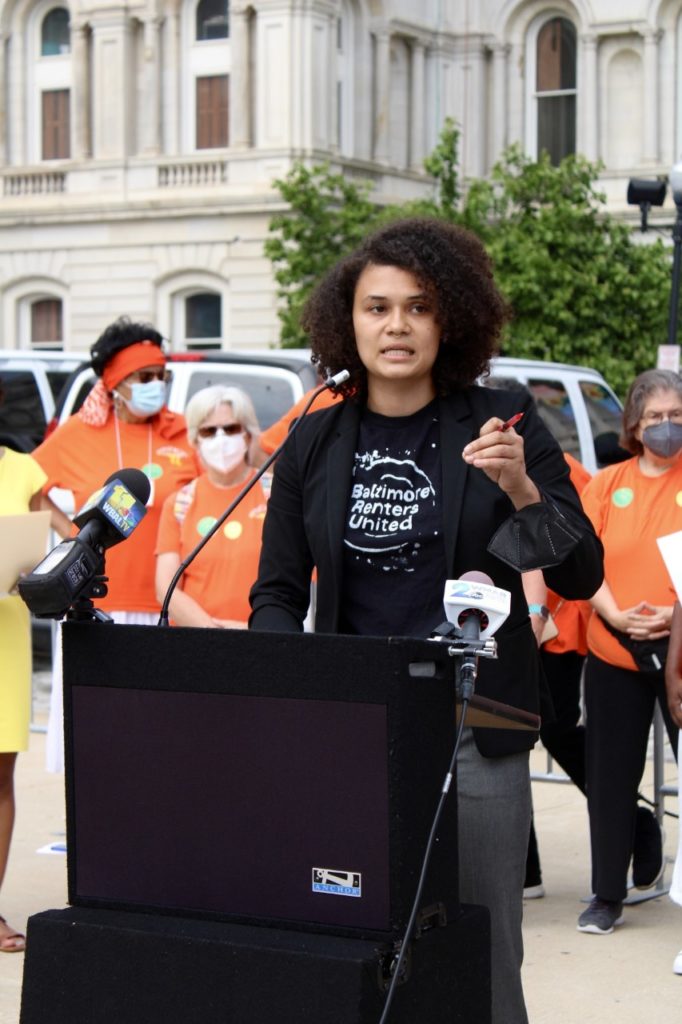
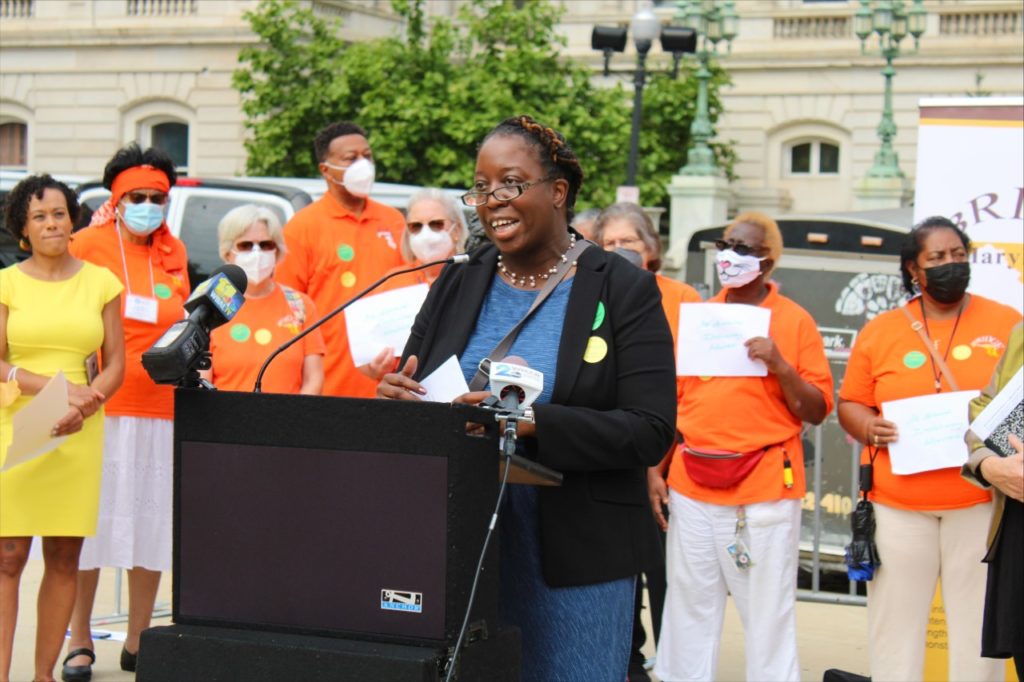
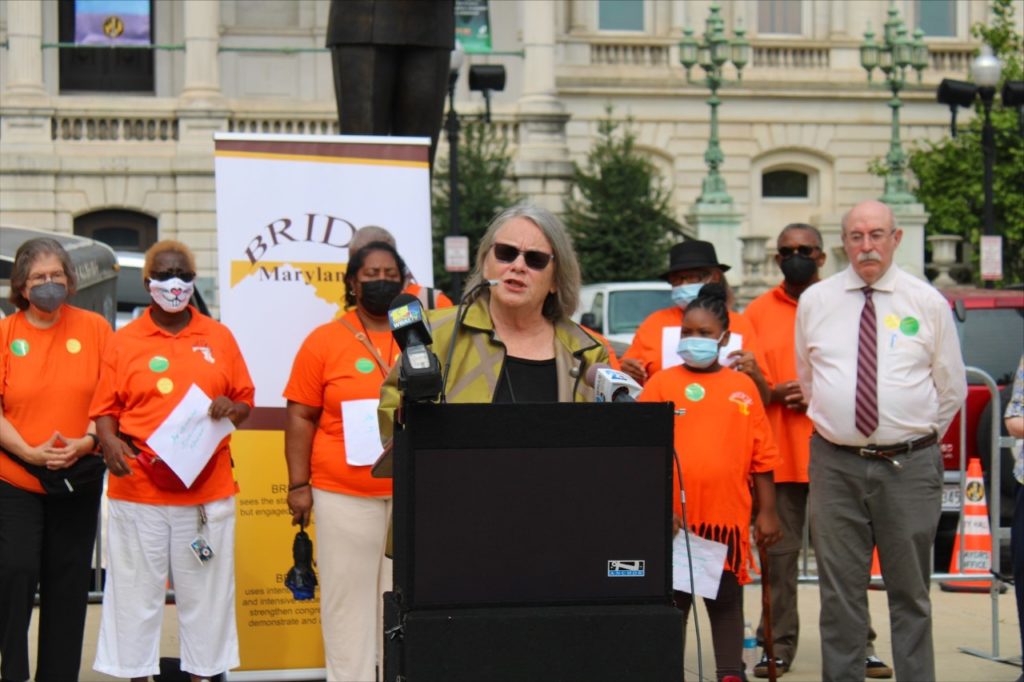
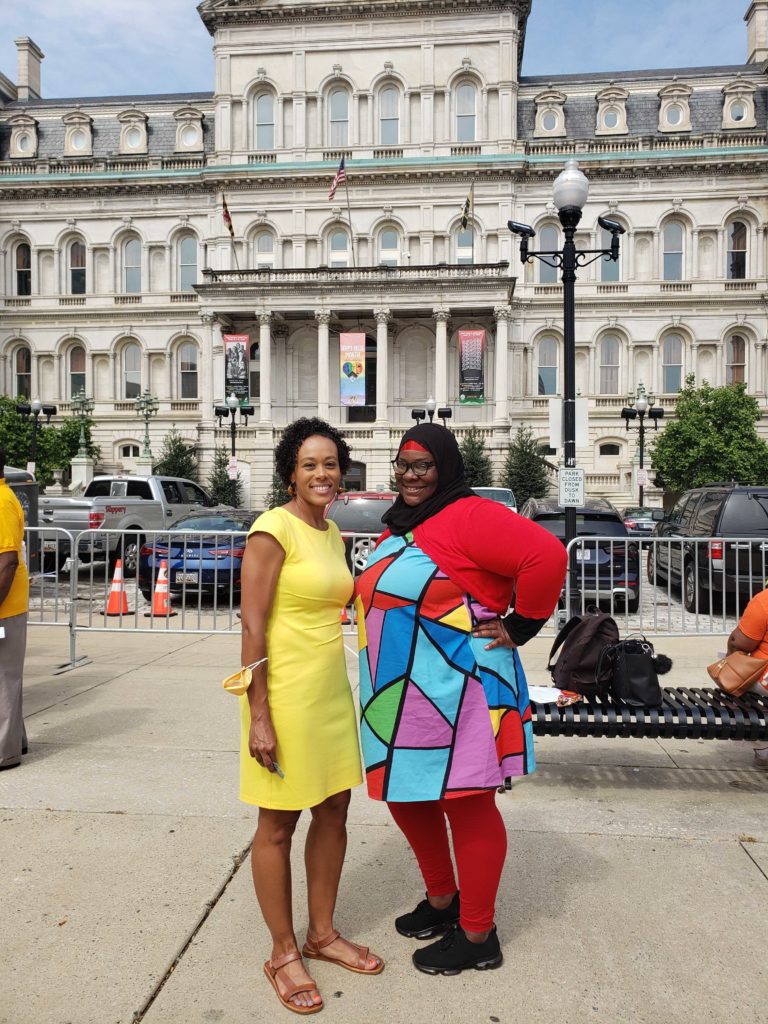
###
For Immediate Release: May 25, 2022
Contact: BRHP, 667-207-2100
Baltimore, MD – The Baltimore Regional Housing Partnership (BRHP) announced today that it is the recipient of a $3 million grant from the Maryland Department of Housing and Community Development to administer Emergency Rental Assistance Program (ERAP) funds to families assisted by the Baltimore Housing Mobility Program who have been financially impacted by the COVID-19 pandemic. BRHP assists over 4,300 families across six jurisdictions throughout the Baltimore region with housing, and the grant will centralize requests for emergency rental assistance.
ERAP funds provide direct financial assistance and housing stability services to renters who are struggling to make payments for their rent and utilities. Assistance can be used for rental arrears, utility and home energy cost arrears, and other expenses related to housing incurred due, directly or indirectly, to the COVID-19 outbreak after March 13, 2020. An application for assistance can be initiated by either a landlord or tenant.
While BRHP provides prospective rental assistance to its participants through the Housing Choice Voucher, the organization is aware of the increasing immediate need for rental assistance for participants who are behind on rent due to COVID-19-related financial hardship. The direct administration of emergency rental assistance by BRHP to program participants and property owners renting to participants will mitigate the risk of eviction and keep families stably housed.
“We are grateful for the opportunity to partner with the Maryland Department of Housing and Community Development to simplify the process of getting emergency rental assistance into the hands of families who need it most,” said Adria Crutchfield, executive director of the Baltimore Regional Housing Partnership. “We are building on our existing infrastructure as a regional housing provider to reach families and property owners faster with less paperwork requirements. In doing so, we are reducing the case load of local jurisdictions also administering ERAP funds.”
On March 8, 2022, BRHP began accepting and reviewing applications for the emergency rental assistance from qualifying participants and property owners of the Baltimore Housing Mobility Program. The organization has received over 500 applications and completed review for nearly 60%. Now that the funding has been received, BRHP will issue payments to approved applicants on a rolling basis starting in June. BRHP is working with the Maryland Department of Housing and Community Development and local housing authorities to prevent duplication of assistance.
For more background on the Baltimore Regional Housing Partnership: www.brhp.org
For more background on the Maryland State Department of Housing and Community Development’s Emergency Rental Assistance Program: https://dhcd.maryland.gov/Pages/EvictionPrevention/default.aspx
###